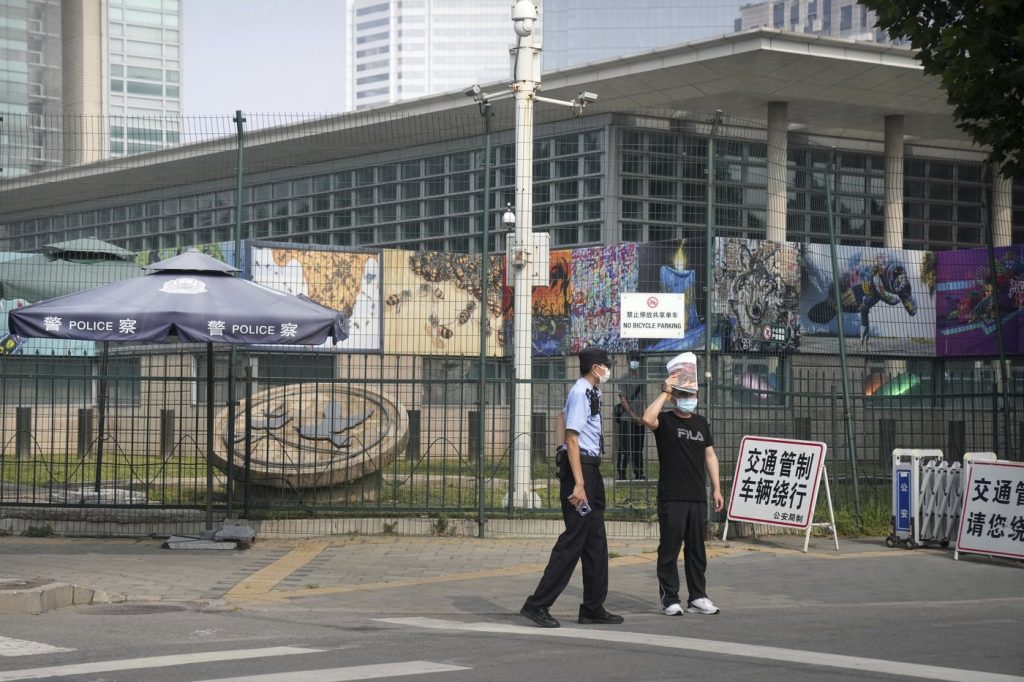The U.S. government has implemented a sweeping ban prohibiting American government personnel, their family members, and contractors with security clearances from engaging in romantic or sexual relationships with Chinese citizens, as reported by the Associated Press. This new directive was put into effect by Nicholas Burns, the departing U.S. Ambassador to China, in January, shortly before he left his post. Four individuals knowledgeable about the matter revealed the policy to the AP, speaking on the condition of anonymity due to its confidential nature.
While some U.S. government agencies previously enforced strict limitations regarding personal relationships, a comprehensive “non-fraternization” policy had not been publicly announced since the Cold War era. It is fairly common for American diplomats in other nations to form romantic connections with locals, including marriages. The initial version of this policy was enacted last summer, primarily targeting U.S. personnel from forming romantic or sexual relations with Chinese citizens employed as guards and other support staff at the U.S. Embassy and five consulates across China. However, Burns broadened this policy to apply to any Chinese citizen in China just days before President Donald Trump's inauguration.
This extensive ban encompasses all U.S. diplomatic missions located in mainland China, including the embassy in Beijing and consulates in Guangzhou, Shanghai, Shenyang, and Wuhan, along with the American consulate in the semi-autonomous region of Hong Kong. Notably, the ban does not extend to U.S. personnel stationed outside of China. There is an exception for those with pre-existing relationships, who may apply for exemptions, but if denied, they are required to terminate the relationship or resign from their positions. Violators of the policy will be expelled from China immediately.
The new directive was communicated both verbally and electronically to American personnel in China in January, but it has not been made public. The State Department has declined to comment on internal matters, while the National Security Council has redirected inquiries to the State Department. Burns has not responded to inquiries regarding this policy after rejoining The Cohen Group, a consultancy, in February.
This policy marks a return to Cold War-era practices, during which intelligence services often exploited romantic relationships to extract sensitive information. The State Department has maintained stringent reporting mechanisms on personal relationships involving U.S. personnel stationed in China and similar high-risk locales such as Russia and Cuba. Declassified documents indicate that in 1987, personnel in the Soviet bloc and China were prohibited from pursuing friendships or romantic relationships with locals following incidents involving U.S. individuals being compromised by foreign spies. After the dissolution of the Soviet Union, these restrictions were relaxed, but the U.S. had not seen such a blanket ban on relationships in many years.
With rising tensions between the U.S. and China over trade, technology, and geopolitical issues, the imposition of the non-fraternization policy reflects an aggressive posture by the Chinese government, which has been known to deploy covert tactics to extract intelligence. Former CIA analyst Peter Mattis highlighted instances where American diplomats were seduced by Chinese agents, although he noted fewer reported cases in recent years. He emphasized that the Chinese Ministry of State Security (MSS) actively exploits any human connection of interest to gather intelligence, indicating an escalating effort to infiltrate U.S. missions.
In parallel, the Chinese government has tightened controls over its personnel abroad, enforcing regulations that limit the opportunities for Chinese diplomats to spend extended periods overseas and restrict promotions for civil servants with foreign-born spouses. The Chinese military and police are largely barred from leaving the country without prior approval from superiors, further solidifying the isolationist practices for officials in sensitive positions.
Chinese authorities have yet to provide any comment on the U.S. non-fraternization policy, largely deferring inquiries back to the U.S. As both nations navigate a landscape of increasing scrutiny and regulation, diplomatic relations continue to evolve amid a backdrop of geopolitical tension.










